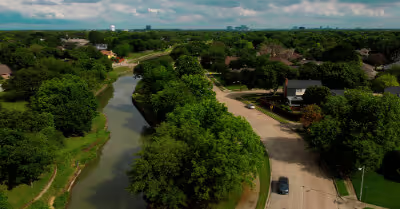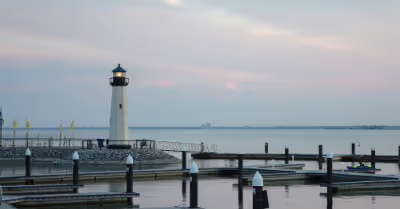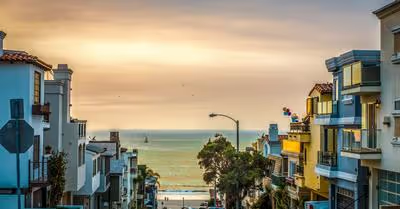Table of Contents
Lifespan Statistics for Retirement Communities
Honestly speaking, the fact that people living in retirement communities live longer has always been used as a marketing strategy to help many seniors move to retirement communities. But according to a report by the United States General Accounting Office (GAO), seniors who choose to live in retirement communities live 1.5 to 2 years longer than seniors who choose to retire in their homes.
For many older Americans, making basic decisions that come with aging in place or retiring in your home will eventually become challenging or almost impossible due to your medical conditions. While activities such as maintaining your home, health, and bills are widely considered basic chores, they'll ultimately become tricky for many seniors.
On the contrary, moving into a retirement community can be a great way of alleviating the unwanted stresses of aging in place. In addition to doing away with these unwanted stresses, living in a retirement community means that a senior doesn't have to worry about daily stresses such as cleaning, doctor's appointments, and many more. They also offer seniors the opportunity to interact and socialize, which is an essential recipe for anyone who wants to live longer and lead a more fulfilling life.
The Health Benefits of Socialization
One of the main features of living in a retirement community is socialization. You not only have the chance to interact and socialize with fellow residents but you find it a lot easier to meet and connect with people who share your interests. According to research, seniors are 22% more likely to live longer and lead more fulfilling lives if they're given the chance to socialize with others. In fact, the research points out seniors who are more active have stronger immune systems, have low risks of dementia, and tend to live longer.
It's also common knowledge that people who have regular contact with others generally live longer and are happier than those who do not. By moving into a retirement community, you'll not only alleviate loneliness but will also lower the risk of suffering from diseases such as ulcers, heart disease, diabetes, and headaches. Your mind will stay alert and active, and this has a direct relationship with living longer.
We have to note that your social circle will begin to shrink as you age. You'll begin to lose friends and family and this can have some devastating effects on your mental, emotional, and physical health. If you're living in your home, you might just find yourself lonely and isolated and this can, unfortunately, shorten your lifespan.
Moving into a retirement community will most certainly mitigate loneliness and isolation. You'll find the opportunity to meet new people, engage with others outside your doorway, and even make new friends! Believe it or not, this can improve your overall well being, make your life more fulfilling, and extend your lifespan.
According to research from the University of Chicago, loneliness can lead to high blood pressure, depression, and early mortality in seniors. So even if you're in good health, loneliness can be emotionally and mentally overwhelming. As such, you should consider moving into a retirement community, which will at least guarantee some level of social interaction.
Living in a Retirement Community is Healthier
Naturally, leading a healthier lifestyle can decrease the risk of suffering from disease as your immune system is a lot stronger. This can, of course, translate into a longer life expectancy and this is exactly what living in a retirement community provides to seniors. A retirement community offers seniors the chance to easily access comprehensive wellness programs that are more likely to improve their overall wellbeing, thereby prolonging their lifespans.
When it comes to senior living, staying active and healthier is the best way to prolong your life. According to research by the Hebrew University Medical Center, seniors who engage in various exercises tend to live longer and have lower risks of becoming disabled. And even if you haven't led an active life throughout your younger years, staying active by exercising during your twilight years will make you live longer.
Unlike aging in place, many retirement homes are known to offer various wellness programs that can stimulate seniors' minds and help them in maintaining their strength and flexibility. In short, it's almost impossible to offer seniors the type of wellness programs that they may receive in retirement communities when they're in their homes. In retirement communities, seniors can easily access various wellness programs and will have friends or fellow residents who can motivate them to get involved in these programs.
The Role of Nutrition Provided in Retirement Communities
Another key to living a longer and healthier life is nutrition. Combined with both physical and mental activities, good nutrition is an essential part of leading a healthier lifestyle. That's why we've always been told that what you eat today affects your health and the way you feel today, tomorrow, and in the future.
Even though you can choose to eat healthy and nutritious meals when retiring in your home, it can sometimes become a long shot as you perhaps do not have somebody to offer or even supervise what you eat. This is, of course, different in retirement communities. Many retirement communities employ nutritionists. They are tasked with ensuring that residents are well-fed and are offered meals that can minimize inflammation and reduce the risks of chronic diseases, and this is essential in improving the quality of life and increasing longevity.
In some retirement communities, meals can be prepared to meet your unique health needs and provide you with the nutrients that may prolong your life and help you in fighting various old age diseases. For example, you'll be provided with diets rich in anti-inflammatory and antioxidant polyphenolic compounds that may help in mitigating age-related neurodegenerative diseases such as Alzheimer's and Parkinson's disease.
To this end, many seniors living alone may find it quite challenging to cook nutritious feed that suits their age. But in retirement communities, residents are guaranteed up to three chef-prepared nutritious meals. If anything, these meals are designed to have special diets for seniors with various chronic problems such as diabetes. Needless to say, this will prolong your lifestyle.
Retirement Communities are Safer
One of the main priorities of retirement communities is to keep seniors safe and healthy, which will definitely prolong their lives. Here's how they do it.
Retirement Communities Minimize the Risk of Falls - According to the Center for Disease Control and Prevention (CDC), falls are one of the main causes of both fatal and devastating injuries in seniors aged 65 or older. Many seniors who age in place are likely to fall in various places within their homes because these homes aren't properly designed for old age.
On the contrary, retirement communities are not only designed for accessibility and mobility but are also designed to ensure that the residents are always safe and do not risk falls. Many areas are designed with ramps, hand railings, and flat thresholds. When it comes to bathrooms, where many falls in seniors are known to occur, you'll find specially designed walk-in showers, raised toilets, and grab bars.
At the end of the day, the risks of falls can be minimized if you choose to live in retirement homes and this might prolong your life.
On-call Staff in Medical Emergencies - Unlike when aging in place, retirement communities often have medical alert systems inside the rooms that can be life-saving in case there's an emergency. The fact that there is a professional medical staff in hand to respond to your situation increases your chances of survival if anything happens.
Disaster Preparedness - Have you ever imagined what would happen to you if you decide to age in place and disasters such as an earthquake, tornado, or fire struck? You might have to find a safe spot and this can be a long shot for your old bones. If anything, you might be responsible for installing carbon monoxide alarms, checking smoke detectors, and even replacing fire extinguishers!
The same cannot be said of a retirement community. Most of these communities have concrete disaster plans in place, as well as staff that is well-trained and prepared to help seniors if such disasters strike. The peace of mind that comes with such a level of preparedness can make you live longer.
Leading a Maintenance-free Lifestyle
Aging in place can be emotionally, mentally, and physically stressful. Imagine having to deal with broken ramps, water leaks, lawn care, and many more. These are just some of the few stressful things that you may have to deal with if you choose to age in place and it can shorten your lifespan.
The same cannot be said of retirement communities. As a resident, you'll lead a stressful-free, maintenance-free lifestyle. You'll have the utmost peace of mind and not have to worry about home maintenance. Instead, you have the whole time to relax, get some good sleep, and pursue your passion, which is essential in living longer.
Recent Articles
















